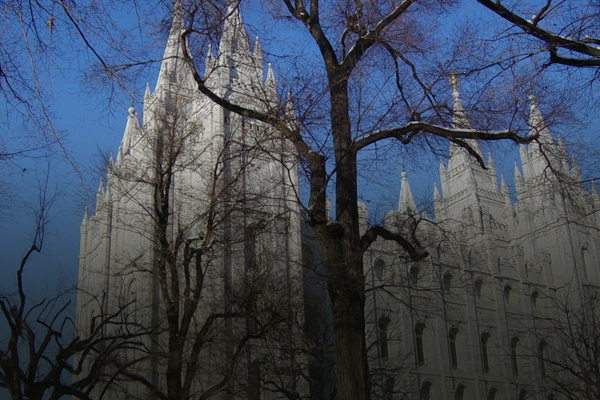
“Those who gain only this general or unconditional salvation will still be judged according to their works and receive places in a Terrestial or Telestial kingdom. They will, therefore, be damned; their eternal progression will be cut short; they will not fill the full measure of their creation, but in eternity will be ministering servants to more worthy persons.” (McConkie, Mormon Doctrine, pg 669-670, 1966 Edition)
“Conditional or individual salvation, that which comes by grace coupled with gospel obedience, consist in receiving an inheritance in the Celestial Kingdom of God. This kind of salvation follows faith, repentance, baptism, receipt of the Holy Ghost, and continued righteousness to the end of one’s mortal life. (D & C 20:29 & 2 Nephi 9:23-24). All others are damned – Even those in the celestial kingdom however, who do not go on to exaltation, will have immortality only and not eternal life – they will be ‘ministering servants, to minister for and to those who are worthy of a far more, and an exceeding and an eternal weight of glory’. They will live ‘separately and singly’ in an unmarried state ‘without exaltation, in their saved condition, to all eternity’ (D & C 132:16,17). Salvation in its true and full meaning is synonymous with exaltation or eternal life and consist in gaining an inheritance in the highest of the three heavens within the Celestial Kingdom – It is the salvation which saints seek – This full salvation is obtained in and through the continuation of the family unit in eternity, and those who obtain it are gods – If it had not been for Joseph Smith and the restoration, there would be no salvation. There is no salvation outside The Church of Jesus Christ of Latter-day Saints.” (McConkie, Mormon Doctrine, pg 669-670, 1966 Edition)
Mormonism Makes No Assurance About Eternal Life
While “good works” are obviously important to me as a Christian, Mormons are dependent on “good works” for eternal life. This becomes apparent when I ask my Mormon friends and family (I have six brothers and sisters who were raised LDS) about their eternal destiny. “If you died tonight, would you have eternal life?” This question usually produces an answer similar to: “I’m not sure, I hope so, I’m trying hard and doing the best I can.” When our salvation is based on our own effort, we can never be sure if we’ve done enough to merit the reward. For this reason, my Mormon family has no assurance of Salvation:
“There must be works – many works – and an all-out, total surrender, with a great humility and ‘a broken heart and a contrite spirit.’ It depends on you whether or not you are forgiven, and when. It could be weeks, it could be years, it could be centuries before that happy day when you have the positive assurance that the Lord has forgiven you. That depends on your humility, your sincerity, your works, your attitudes.” (Spencer Kimball, former Prophet of the LDS Church, The Miracle of Forgiveness, p.325)
“This salvation requires more than repentance and baptism by appropriate priesthood authority. It also requires the making of sacred covenants, including eternal marriage, in the temples of God, and faithfulness to those covenants by enduring to the end. If we use the word salvation to mean ‘exaltation,’ it is premature for any of us to say that we have been ‘saved’ in mortality. That glorious status can only follow the final judgment of Him who hs the Great Judge of the living and the dead.” (LDS Apostle Dallin H. Oaks, ‘Have You Been Saved?’, an address at the 168th Annual General Conference of the LDS Church given on April 5, 1998)
Christianity Provides the Assurance of Salvation
This is what saddens me most as a Christian. My brothers and sisters, as good as they may try to be, have no certainty about their eternal fate, especially if they study and believe the core teachings of Mormonism. This lack of assurance is decidedly unchristian. Christians know, right now, that we have (and will continue to have) eternal life:
1 John 5:9-14
We accept man’s testimony, but God’s testimony is greater because it is the testimony of God, which he has given about his Son. Anyone who believes in the Son of God has this testimony in his heart. Anyone who does not believe God has made him out to be a liar, because he has not believed the testimony God has given about his Son. And this is the testimony: God has given us eternal life, and this life is in his Son. He who has the Son has life; he who does not have the Son of God does not have life. I write these things to you who believe in the name of the Son of God so that you may know that you have eternal life.
John uses the present imperative, “know” here for a reason. John is telling us that we can know right now. We can have certainty right now. We can know today that our eternal life is secure because it isn’t earned through something we must continue to do, but is instead gifted to us as something that was already done by Jesus on the cross. The beauty of grace is that it provides us with confidence to live eternal lives right now. That’s good news, and it’s the reason we make trips to Salt Lake City. The beauty of grace is that it provides us with confidence to live eternal lives right now. Share on X

J. Warner Wallace is a Dateline featured Cold-Case Detective, Senior Fellow at the Colson Center for Christian Worldview, Adj. Professor of Christian Apologetics at Talbot School of Theology, Biola University, author of Cold-Case Christianity, God’s Crime Scene, and Forensic Faith, and creator of the Case Makers Academy for kids.
Subscribe to J. Warner’s Daily EmailSave
J. Warner Wallace is a Dateline featured cold-case homicide detective, popular national speaker and best-selling author. He continues to consult on cold-case investigations while serving as a Senior Fellow at the Colson Center for Christian Worldview. He is also an Adj. Professor of Christian Apologetics at Talbot School of Theology, Biola University, and a faculty member at Summit Ministries. He holds a BA in Design (from CSULB), an MA in Architecture (from UCLA), and an MA in Theological Studies (from Gateway Seminary).









































Pingback: The Witnesses of the Resurrection Compared to the Witnesses of the Golden Plates | Cold Case Christianity
Pingback: The Difference Between Christian Grace and Mormon Grace | Cold Case Christianity
Pingback: Easter Reveals the Incompatible Nature of Our Religious Worldviews | Cold Case Christianity
Pingback: Mormon Beliefs, Salvation and the Nature of Perfection | Cold Case Christianity
Pingback: What Does Christianity Say About Salvation? Six Big Questions | Cold Case Christianity
Pingback: Salvation: Why Christians Know They Have Eternal Life (Right Now) | TLG Christian News
Pingback: Why Christians Know They Have Eternal Life (Right Now) | Cold Case Christianity